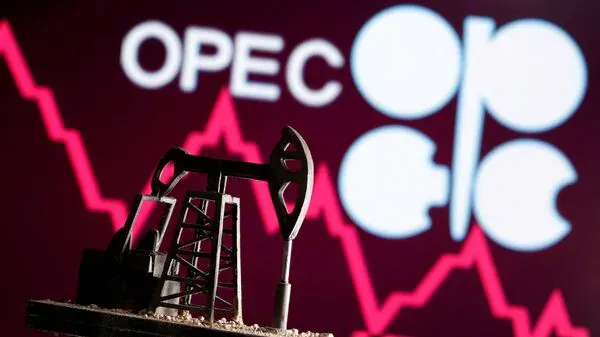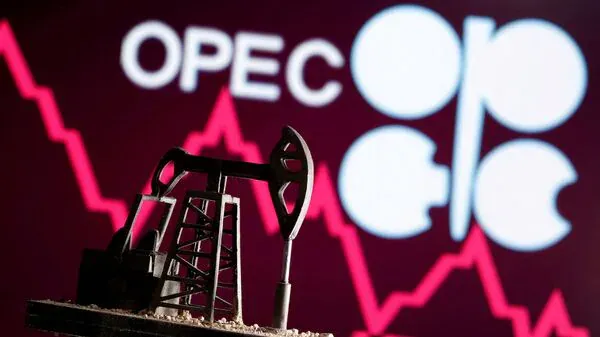The world has been hoodwinked at COP28. But not in the way you think.
I’ve spent the last two decades investigating and exposing fossil fuel interests around the world. I’ve exposed the central role of fossil fuels in major Western military interventions; how fossil fuel lobbies have undermined democracy; how fossil fuel interests have compromised global climate negotiations; and especially the mounting economic dangers of fossil fuel dependence. I’ve done this at cost to my own career. My investigation into the role of Gaza’s gas in radicalising the Israel-Palestine conflict got me fired from The Guardian.
Throughout this time, as a radical environmentalist, the call to keep fossil fuels in the ground has resonated deeply with me. But the more I’ve learnt about how complex systems work, the more I’ve come to realise that the environment movement’s singular obsession with this idea is, itself, symptomatic of how broken our approach is to the challenge of climate change.
Human beings like to reduce things down into simple ideas. The simpler the better – this serves many purposes. If we can explain something with a few simple ideas, we use less resources and it will often fit our basic assumptions about the world. It also feels comforting to reinforce what we think we already know. In a context of escalating uncertainty and anxiety, the retreat to what we think we know, often in ever simplifying ways, has become a hallmark of our politics and culture.
Keep it in the ground. But how?
The danger of our current approach particularly struck me when George Monbiot, a writer whom I greatly admire and who has inspired me since I was a teenager, was invited to address an audience on BBC Question Time:
"Leave fossil fuels in the ground. It's so simple. This is the most important predicament humanity has ever faced and by design as a result of the enormous oppressive power of the fossil fuel industry, we're flunking it."
But it’s not so simple at all. While we know all about how the biggest fossil fuel companies in the world deliberately lied about climate change since the 1960s, the biggest reason that fossil fuel production continues to increase is not simply because of the nefarious deception of the fossil fuel industry: it’s because the global economy remains systemically dependent on fossil fuels.
Fossil fuel production keeps growing, and investments keep expanding, not simply because fossil fuel producers are nefarious and oppressive, but fundamentally because of rising global economic demand. Yet the narrative around the COP28 climate summit has become obsessed with the idea that the only reason we can’t phase out fossil fuels is because oil producers refuse to do so.
This meme has become so embedded, so ‘obvious’ and ‘simple’ and virally communicated, amplified repeatedly, that it’s become a veritable truism. The problem is that it overlooks a far more uncomfortable reality: the entirety of our industrial civilisation is systemically entwined with exponentially increasing fossil fuel production.
To assume that fossil fuel production is increasing predominantly due to the lies and deception of fossil fuel producers is to miss the bigger picture. Fossil fuel production is actually increasing because the global economy as it’s currently structured is dependent on it. And as long as economic demand for fossil fuels exists, fossil fuel producers will remain in business.
This is why the apparent fury over the draft text at COP28 and its inclusion of fossil fuels is ultimately a misdirection.
Al Gore’s deception
Consider former US Vice President Al Gore’s claim that COP28 is a “complete failure” principally due to the world’s “petrostates” scuppering a fossil fuel phase out deal.
He specifically mentions “OPEC”, but does not acknowledge that the United States is the world’s largest fossil fuel producer and consumer.
Indeed, Gore completely ignores that last year the US became the world’s biggest exporter of liquified gas, with exports set to nearly double by 2035. The United States is also leading the world’s largest planned expansion of oil and gas through 2050.
Gore also fails to criticise the US for refusing to join a Dutch coalition to phase out fossil fuel subsidies.
He fails to admit that, according to the IMF, the United States and EU are the world’s second and fourth biggest subsidisers of fossil fuels.
And he fails to point out that despite all their lip-service about a fossil fuel phase out, they refuse to make available the climate finance necessary to make an actual phase out feasible for developing nations.
Consider leading OPEC member, Iraq, which has rejected both a phase down and phase out of fossil fuels. This is a country devastated by the impact of decades of US and UK-led military interventions that likely killed millions, both directly and indirectly, while destroying the country’s infrastructure.
Iraq is now a leading global oil producer, and desperately trying to use its oil production to support ongoing reconstruction and development. Western companies of course played a big role in trying to profit from this after the war. But about a quarter of Iraqis – 11 million people – still live below the poverty line. Unemployment and violent conflict continue to plague the country.
Meanwhile, oil accounts for 99% of Iraq’s exports, 85% of its federal government budget and 42% of its GDP.
So imagine expecting Iraq to commit to rapidly eliminating the one resource it has, on which its entire economy currently depends – without being offered any viable transition path to a prosperous post-carbon future.
Yet that is exactly what has been done at COP28. But it’s not Arab petrostates to blame for this, but the world’s richest industrialised countries, and the world's number one petrostate currently run by Al Gore's own Democrat party.
You won’t hear the likes of Al Gore owning up to this travesty. Instead, the Irish environment minister, a lead EU negotiator on climate finance, had the gall to threaten that the EU could walk away from the climate talks over the lack of support for a fossil fuel phase out.
Yet it is he, and his fellow EU negotiators, not to mention the US and UK, who have refused to set up the mechanisms needed to rapidly phase out fossil fuels by supporting countries to transform their energy systems.
Phase it all out – for ‘free’
Out of 198 countries in the world at the 28th United Nations climate summit, 98 of them are oil producers. And half of those are developing countries.
As noted by Brandon Wu, head of policy at Action Aid USA, developing countries “would rather have no fossil fuel phaseout with no finance, rather than a fossil fuel phaseout with no finance. They don't believe finance is forthcoming, and without it many of them wouldn't be able to meet new mitigation obligations. Only developed countries have the ability to deliver the missing ingredient to make this whole process work. Not only are they not doing it, they're signaling that they never want to do it, by watering all new text recalling their obligations. It's never been clearer that providing finance is not only an ethical imperative, it's also a climate imperative. If we must play a blame game, let's point the finger at the developed countries that have been consistently failing this imperative.”
In other words, to ask developing countries to stop producing the oil their economies depend on without a roadmap and funding to do so is to ask them to commit national suicide. A choice between economic suicide today and climate suicide tomorrow is, of course, no choice at all.
And this is the real reason why a deal to phase out fossil fuels has not been possible at COP28. It’s also why Western governments have been all too happy to pin the blame on the Arab ‘petrostates’ – because it deflects so effectively from their own deep culpability in the impossibility of getting a global agreement on phasing out fossil fuels.
You’d think that this ‘petrostate’ structure had just magically popped into existence one day, that it wasn’t, in fact, a fundamental artifact of a US-UK-EU dominated global geopolitical order quite deliberately constructed after the Second World War to ensure Western consumers had cheap access to the most lucrative fossil fuel resources. And one that remains closely guarded and protected.
Western negotiators pretending they want to phase out fossil fuels know full well that their failure to provide the funding and support for fossil fuel producers to shift toward a renewable future is the real, hidden spoiler at COP28. And they know that by pinning the blame on fossil fuel producers, they can escape the scrutiny they deserve about what they are doing at home to eliminate Western demand for fossil fuels.
No, climate scientists don’t actually have the answers
The approach, ultimately, has to change. The pathway to leaving fossil fuels in the ground has to focus not on repeating the obvious ad nauseum – simply saying ‘phase out fossil fuels’ again and again will not make it happen, or increase chances of it happening.
No matter how many op-eds and reports and thought leadership pieces and policy dialogues and investigations we have in which that catchphrase is concluded, it simply won’t land because it doesn’t address the necessity of changing the system that consumes fossil fuels.
Widespread energy and systems blindness has prevented our institutions from recognising this stark reality. It’s easier to focus on an ‘enemy out there’, rather than grappling with the far more confounding fact that there is no enemy, there is only our endlessly escalating consumption.
This, of course, begs the next question. How do we get to a system which no longer needs to burn oil, gas and coal?
Let me be blunt about this. Climate scientists do not have the answer. They know that we need to eliminate emissions, and they know that the cause of emissions is burning fossil fuels. But that is not a solution: that’s a diagnosis of the problem. Translating this into the call for what NASA climate scientist Peter Kalmus describes as “a full, equitable, planned, rapid end to fossil fuels. Period.” is still not a solution, but merely an extended diagnosis of the problem, because it’s completely incapable of offering a meaningful pathway for how to actually achieve this.
The conversation needs to shift beyond the technocratic sphere of climate science into the wider domain of systems science, and toward the urgent necessity of figuring out which levers of change we can pull to accelerate the emergence of a whole new post-carbon energy system.
The age of transformation
At a heads of state plenary session on sustainable innovation at the COP28 summit in Dubai, I delivered a keynote speech where I told the audience that the age of oil was over – and would end far quicker than they believed possible, due to two intertwined dynamics: the increasing economic obsolescence of incumbent fossil fuel industries, and the escalating economic competitiveness of clean technologies in energy, transport and food.
Exponentially-improving disruptions from solar, wind and batteries; electric vehicles and transport-as-a-service; precision fermentation and cellular agriculture; as well artificial intelligence are on track to disrupt the most carbon-intensive industries across 90% of emissions over the next two decades.
The main problems are that these more distributed and networked technologies are not deploying fast enough for us to avoid the climate danger zone – and that our civilisational paradigms are still stuck in the outmoded, centralised structures designed to manage the old industrial system.
The phase down or phase out debate is blind to the fact that this transformation is now well underway. We are in the midst of what I’ve called a ‘global phase shift’, a momentous civilisational transformation from one system to another.
The challenge before us is to recognise this global phase shift for what it is. Societies need to adapt to this new reality. Numerous studies show unequivocally that the energy transformation is unstoppable, largely driven by economic dynamics. The issue is that we’re just not moving fast enough - and our mindsets and organising systems remain stuck in the defunct industrial-era paradigm.
At current rates of deployment, we’re still releasing enough emissions to drive global temperatures up by 2.6 degrees Celsius by end of century – far above the 1.5C safe limit agreed in Paris. Many fossil fuel assets are at risk of being ‘stranded’, which means they’ll become unprofitable relative to what investors initially expected, resulting in multi-trillion-dollar financial losses for investors. And as fossil fuel producers see their export markets decline, geopolitical instability will hit the biggest – from Russia to the US, from Canada to Brazil, from Saudi Arabia to Iraq, from China to Malaysia, from Nigeria to Chad.
In other words, we are not only deeply unprepared for the headwinds of this coming transformation; we’re not scaling it up fast enough to avoid dangerous levels of global warming.
When we understand what’s actually happening, we have a chance to refocus efforts on both accelerating the transformation while channelling resources to mitigate breakdowns and disruption along the way.
Change is coming – faster than you think
That’s also why I’m going to draw your attention not to what the rest of the traditional media is obsessing over – the (predictable) failure to get a global agreement to phase out fossil fuels – but on other milestones that signal the unstoppable direction of travel, and what we can do next to accelerate.
This is the first COP summit to have centred global discussions on the role of fossil fuels. This has never happened for the last 27 years. It was always premature to believe that it would automatically result in unanimous agreement. And it now sets the scene for future discussions.
Far from being a complete failure, the latest COP summit has already achieved what no previous COP summit had: the presidency managed to get 130 countries to sign up to the COP28 Global Renewables and Energy Efficiency Pledge – an unprecedented commitment “to work together to triple the world’s installed renewable energy generation capacity” as well as “to collectively double the global average annual rate of energy efficiency improvements from around 2% to over 4% every year” by 2030.
That’s two thirds of governments at COP28, including many leading oil producers. Apart from the UAE, the Gulf countries are notably absent from this agreement – which pledges countries to annual monitoring and progress reviews through ministerial meetings and reporting until 2030.
The tripling renewable energy target is important because of its global systemic implications. It not only implies a reduction in fossil fuel demand; if achieved, it will slash renewable energy costs by half, supercharging their economic competitiveness, and therefore accelerating their continued rapid disruption of fossil fuels after 2030. With two-thirds of the world backing this target, we can expect investments in clean energy to intensify even further in coming years as markets and governments align around this emerging vision.
That perhaps highlights the future of UN COP reform. Climate scientist Michael Mann suggested that the rules should change to allow a supermajority of about 75% of nations to approve a global agreement, rather than the unanimous consensus required today. But, of course, it’s a chicken and egg scenario. We’re unlikely to ever get 100% of countries to agree to a new reform which blocks their current right to veto an agreement.
A more realistic path forward is for countries to work as hard as possible on the global stage of COP summits to secure as much consensus as possible on specific agreements. The UNFCCC process can provide a coordinating forum for countries that wish to cooperate on furthering such agreements, like the COP28 global renewable energy declaration – with scope to gather new endorsements and commitments from other countries. And COP summits can provide a forum to track progress on these agreements through national reporting.
There’s nothing at all to prevent such multilateral cooperation. This would mean that even without a full-fledged global agreement, large swathes of the world committed to accelerating transformation can celebrate their commitments, and embark on tangible action to fulfil them.
Two thirds of the world have signalled their intent to move more rapidly toward a post-carbon future. The task ahead is to build on the emerging coalitions of consensus that have become clear at the COP28 summit to further accelerate action on the most promising levers of change.
Currently, global climate negotiations are happening without any meaningful grasp of the their global systemic context in terms of the Global Phase Shift. Understanding this complex civilisational moment is absolutely crucial to focus decision-makers on the most critical issues. It’s time to jump on board, or be left behind.
If you appreciated this piece, you can keep this free newsletter alive and thriving by joining our community as a Supporter for the price of a cup of coffee a month.
Already have an account? Log In







